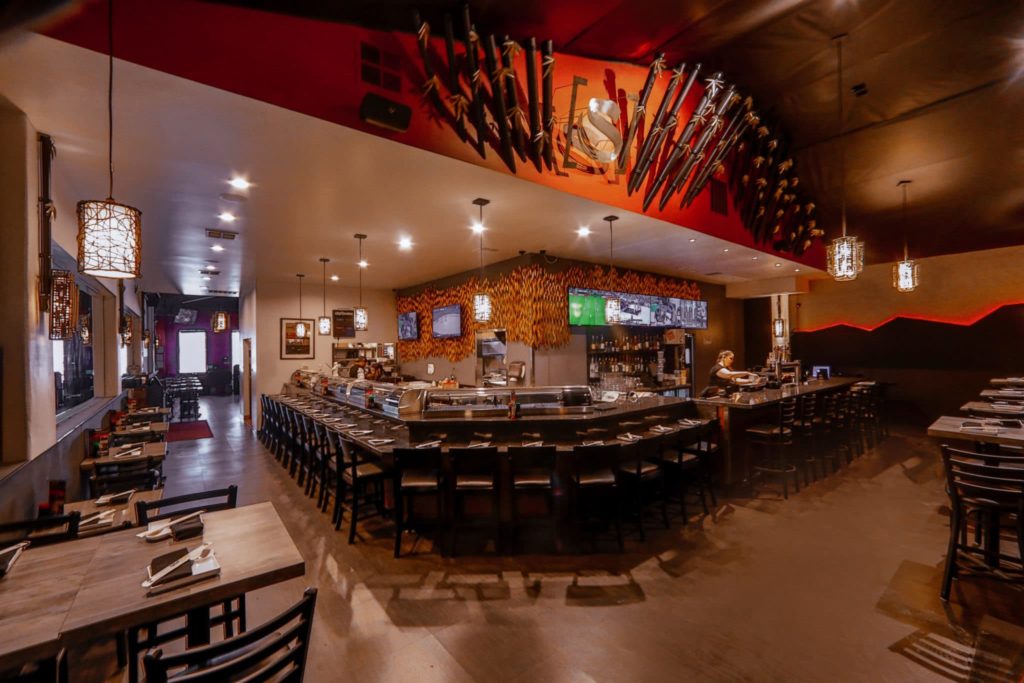The solution to the ongoing labor shortage might seem as simple as paying employees more, but “more” isn’t always available.
In the restaurant industry, budgets are straining to cover the increased costs of ingredients due to widespread shortages. That doesn’t necessarily translate to passing costs onto customers. For some businesses the answer isn’t that simple.
“You can’t raise the price on a burrito, people are going to notice and walk away,” said La Victoria Taqueria owner Nic Barrita, who saw costs double and in some cases triple when his suppliers raised their prices.
Unlike Barrita, Juan Hernandez, manager of Oros Thai restaurant, said he was forced to raise menu prices from 50 cents to a dollar after ingredient costs doubled. Even then Hernandez isn’t able to cover expenses. Compounding this challenge is a staffing shortage.
“Being short-staffed puts a lot of stress on the employees during dinner hours,” Hernandez said. “Everyone’s a little on edge.”
Hernandez told San José Spotlight he’s tried to attract more employees by increasing wages and offering flexibility.
“If someone can only work two days, fine. One day, that’s fine too,” he said.
La Victoria pays more than minimum wage and has recently increased starting rates, but Barrita too has struggled to find employees.
“Right now we’re good, but it’s one of those things it’s like a bubble,” Barrita told San José Spotlight. “Once it bursts you’re back to square one and have to find more people.”
Barrita has been forced to cut back on hours at some La Victoria locations due to staff shortages, with five San Jose locations and one in Hayward.


Lack of applicants
Efforts to recover the restaurant workforce are ongoing, even after the vaccine rollout made hospitality jobs safer. The road back still looks steep. San Jose’s leisure and hospitality sector lost 43,600 jobs from February 2020 to March 2021.
Randy Musterer, owner of Sushi Confidential, said the last nine months have been a challenge when it comes to hiring labor, but with the slower winter season approaching, less people are dining outside, which will help balance his reduced staffing numbers.
“No matter how much we spend on advertising on Craigslist and Indeed, people aren’t applying. So we’d rather pay higher wages to attract more workers,” Musterer said, who has two locations, one in San Jose and another in Campbell. He offers referral bonuses to employees if those referrals stay for at least three months.
His main concern is spring, when business usually picks back up again. But he’s hopeful hiring will be better five months from now.
“Maybe by then we’ll be further along with handling COVID-19,” he said.
Both La Victoria Taqueria and Sushi Confidential have locations downtown, an area of San Jose that was hard hit when tech workers stopped coming to work and went remote.
A livable wage isn’t the only factor for workers when it comes to their job choices. Kayla D. of San Jose said the ever-changing working conditions during the pandemic and the difficult clientele were the major reasons she left the restaurant industry last fall. She now works in education.
“I was fed up,” she said. “Customers had become more entitled and rude over the course of the pandemic.”
Adapting to outdoor dining added more physical labor than Kayla was accustomed to. “We weren’t offered any type of trolley or cart to help move the heavy equipment at the beginning and ends of our shifts,” she said.
Labor shortages aren’t necessarily an issue across the board. Donald Miguel, who runs operations at Chromatic Coffee in Willow Glen, said they haven’t experienced a labor shortage. Chromatic Coffee doesn’t offer any indoor seating and uses a pickup window to hand out coffee orders.
Nick Nuth, owner of MoonBean’s Coffee on Santa Teresa Boulevard in South San Jose, said he received many applications after the shelter in place orders were lifted. He gets two inquiries per day about jobs and attributes his stable workforce to the flexibility of the coffee shop hours.
“We’re good right now. A lot of employees are full-time students or students with internships,” said Nuth, who described himself as a permanent fixture at the coffee shop. “I’m here 80 hours a week so everyone else can come in whenever.”
Contact Kristen Pizzo at [email protected].


Leave a Reply
You must be logged in to post a comment.